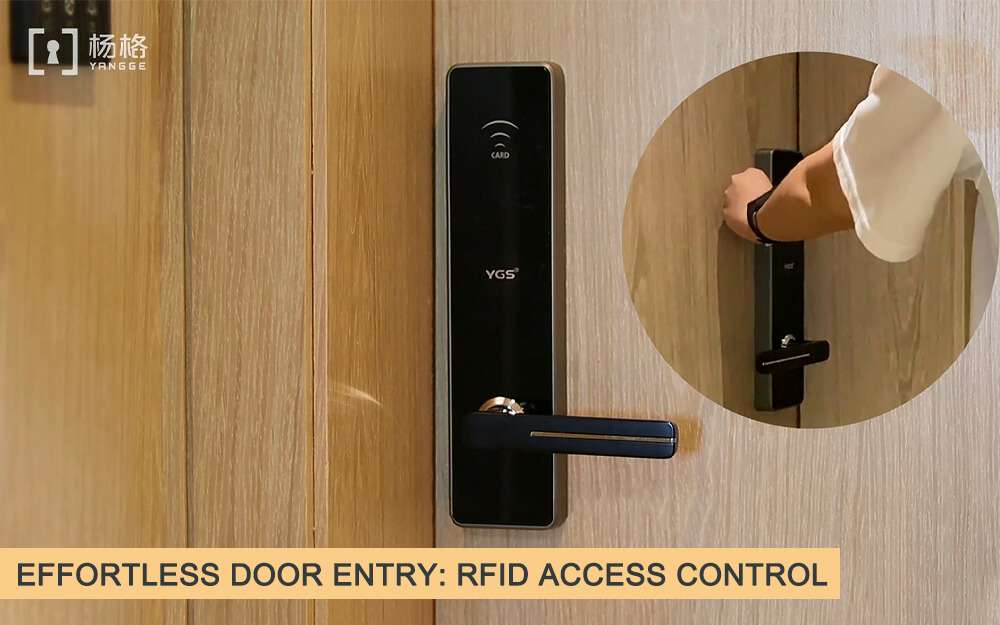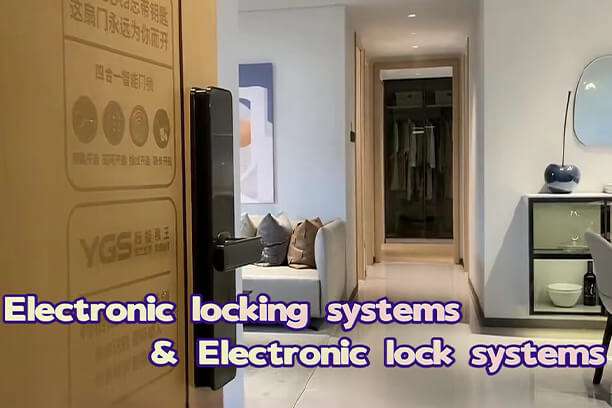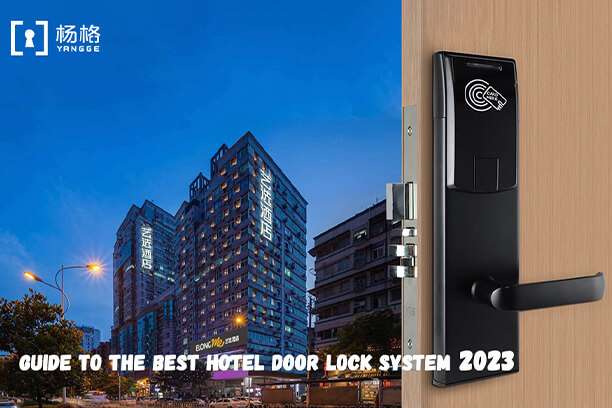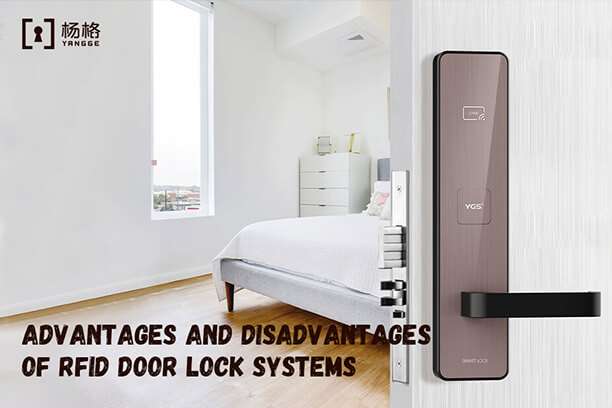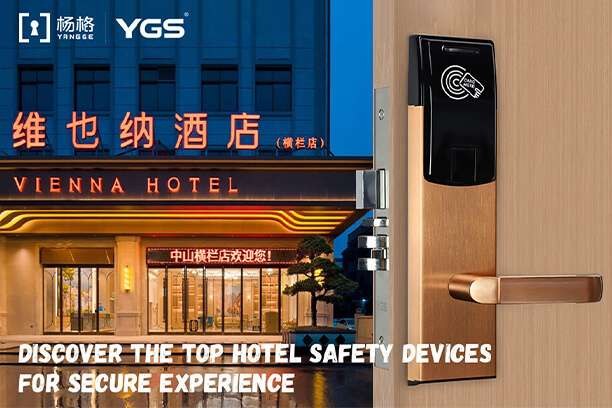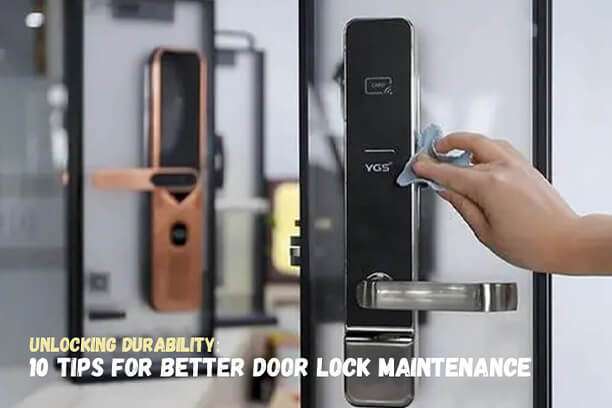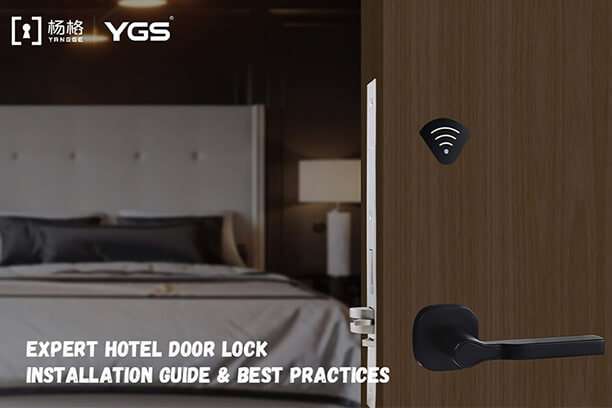As technology advances and security becomes increasingly important, access control has become an integral part of modern life. Among various available methods, RFID access control stands out for its efficiency and stability.
Currently, RFID access control systems are widely used in places such as hotels, apartments, office buildings, and campuses, becoming a norm in daily life. Using RFID access control technology, this article will introduce you to how its technology simplifies access management in hotels.
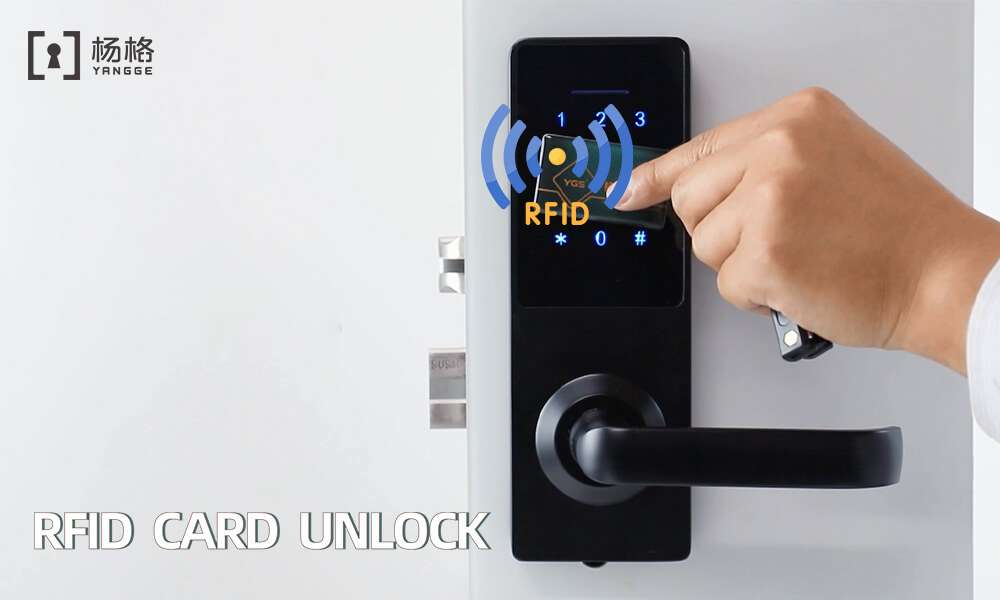
The RFID access control system is a high-tech management system that combines information technology, electronics, and mechanical locks.
This system performs advanced permission validation and enables digital management and control of entry and exit personnel.
RFID access control systems replace traditional mechanical keys, reducing the hassles of key management and effectively preventing key loss.
This system is founded on contactless induction technology. It comprises various components such as management systems, controllers, proximity card readers, and electronic hotel door locks, creating a robust and efficient smart access control network.
Authorized individuals only need to carry an RFID proximity card to verify their identity through the card reader and gain permission to unlock the electronic door lock.
Components of an Rfid Door Lock System
The RFID access control system comprises multiple components that work together. Providing a more secure, convenient, and manageable way to control access in a building or specific areas.
In hotel applications, the RFID access control system primarily consists of the following components:
1. RFID Reader: RFID key card readers are typically installed on hotel room doors or important entrance/exit points. Primarily used for card reading. They usually use RF signals to communicate with the RFID card, and transmit the card data to the access controller to achieve access control.
Readers can be either contact-based (requiring the card or tag to be physically placed on the reader) or contactless (just bringing the card or tag near the reader is sufficient).
2. RFID Cards or Tags: These serve as credentials for authorized users to access specific areas or rooms. Each card or key fob contains a unique RFID chip that holds identification information. Authorized users carry these cards to gain entry.
3. Access Controller: The access controller is the brain of the hotel access control system. It processes information from RFID cards and determines whether to unlock based on authorization rules. The controller also stores access control rules, records access events, and communicates with electronic door locks.
4. Electronic Door Locks: Electronic door locks are installed on guest room doors and are connected to the access controller. When the access control system validates a user’s access rights, the door lock is unlocked, allowing guests to enter the room.
5. Access Control Software: Access control management software is used to configure, monitor, and manage the access control system. Hotel staff can use this software to create and cancel cards, generate reports, view visitor logs, and make system adjustments.
System Overview:
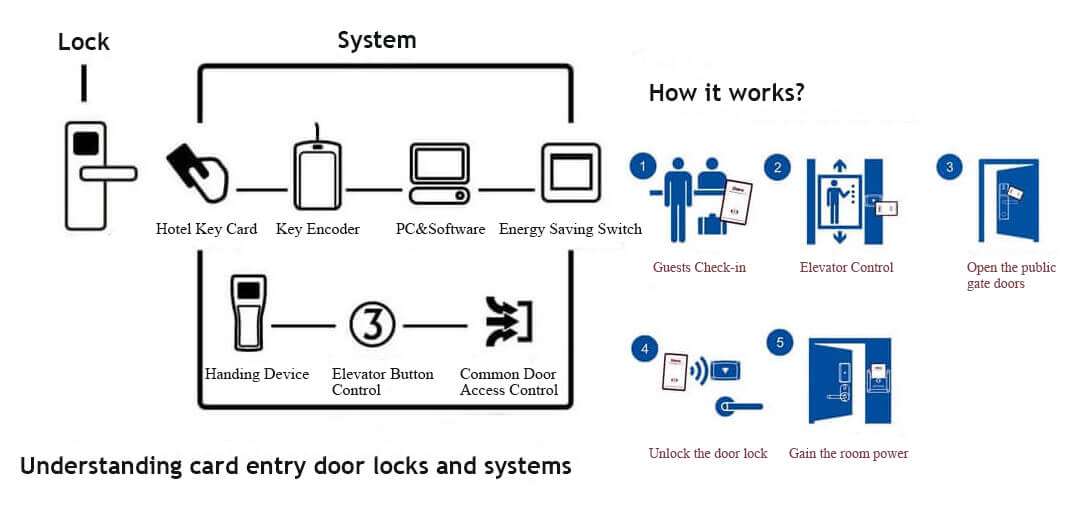
Basic Functions of RFID Access Control System
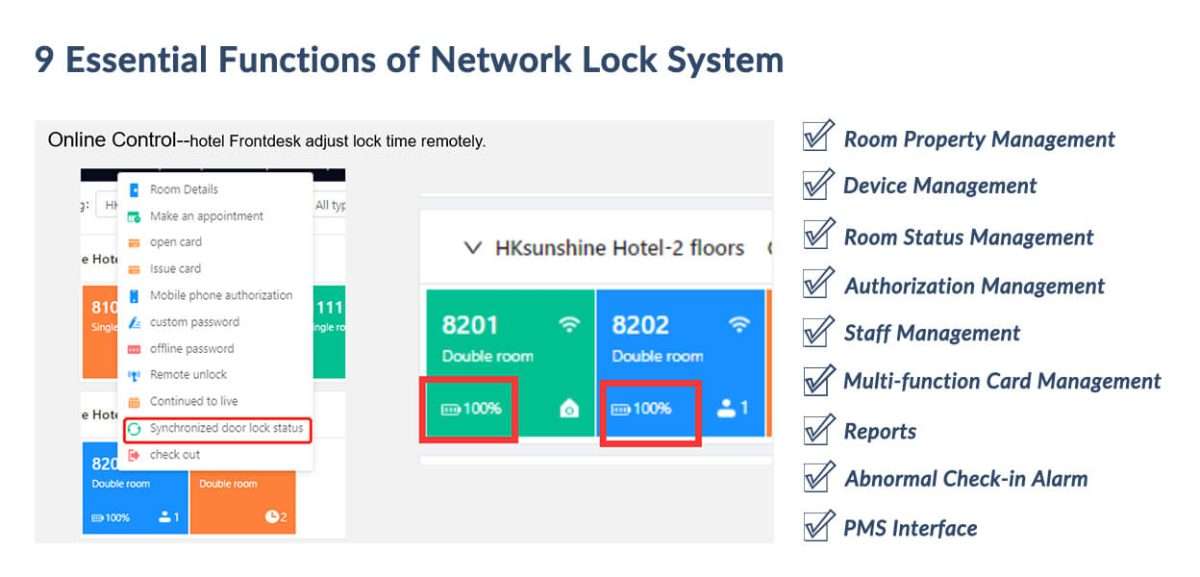
In many high-security buildings, RFID access control systems are an essential tool for managing and maintaining physical security. Here are the key functions of an effective access control system, demonstrating its multi-layered capabilities and high flexibility:
- Identity Authentication and Authorization: RFID access control systems achieve rigorous identity authentication by reading information from RFID cards or tags held by individuals. Only authorized personnel can enter restricted areas. Additionally, the system can precisely authorize cardholder access based on predefined permission levels, ensuring they can only enter specific areas or rooms.
- Real-Time Monitoring and Alerts: These systems provide real-time entry and exit records. Users can easily check current visitor information or review previous access records, whether through keyless or keyed entry. RFID access control systems can also seamlessly integrate with security monitoring systems, monitoring entry points in real-time, triggering real-time alerts for unauthorized access attempts, and notifying relevant parties
- Multi-Dimensional Management Capabilities: The system supports various management methods, including multiple front-end management, employee management, and offline management. All records can be synchronized within the system, making it easy for administrators to maintain the system efficiently.
- Access Logs and Reports: The RFID system meticulously logs each unlocking event, including cardholder information, the unlocking method used, time, date, and the specific access point. These records can generate various reports for audit and security purposes, helping building managers maintain comprehensive control.
- Outstanding Capacity: Each access control controller can accommodate a large number of access cards and access records. The system also supports offline operation. All record data remain for up to 20 years, ensuring the security data remains intact.
- Multiple Authentication Methods: Some advanced access control systems combine RFID cards or tags with other authentication methods, such as facial recognition, mobile Bluetooth, passwords, etc. Users can choose multiple unlocking methods, enhancing user convenience and building security.
In addition to these features, RFID access control systems can be customized to meet the security requirements of buildings and ensure physical security.
What Are the Benefits of RFID Access Control?
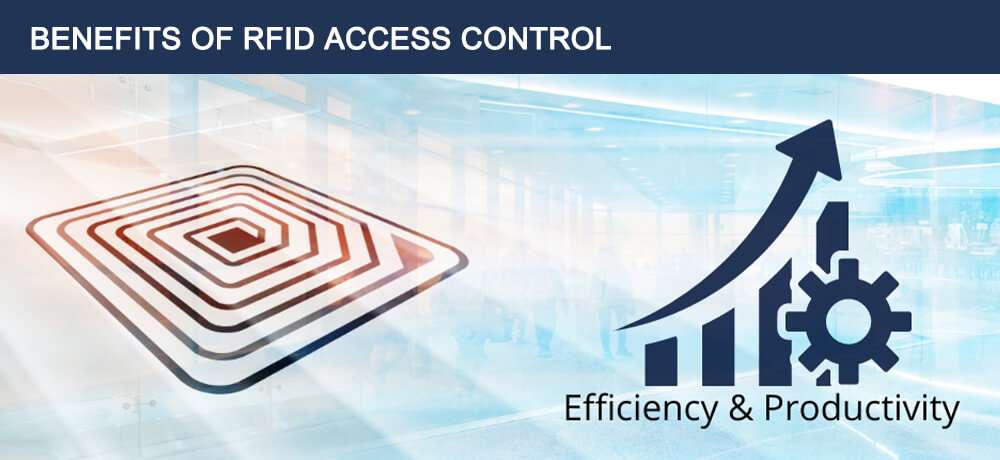
When choosing a hotel security access system, RFID technology is an efficient solution. It offers multiple advantages, including:
- Organized Management: RFID door access control systems are crucial to security systems, efficiently managing building entrances. Advanced RFID systems allow remote operation, and data recording, which can improve internal management for organized control.
- Swift and Convenient Passage: RFID access systems provide modern, fast passage for users. Authorized cardholders can quickly unlock by simply holding their key cards near the reader, without the hassle of keys or locks. It’s convenient and responsive.
- Convenience: Compared to traditional physical keys, RFID access systems are more convenient. Users carry a small RFID card or tag, eliminating the need for multiple keys. If a card is lost, it can be easily canceled or replaced without changing locks.
- Flexibility: Administrators can easily configure and manage RFID access systems, including adding, removing, or canceling cards, providing flexibility for network-based operations.
- Robust Adaptability: RFID cards use wireless communication and are sealed, making them dustproof, waterproof, and resistant to damage and interference. They can be used in harsh environments, and their contactless operation minimizes mechanical wear.
- High Security: RFID access systems offer a high level of security, as RFID cards and tags are difficult to copy or counterfeit. The authorization system’s password management is strict, reducing the risk of unauthorized access to restricted areas.
- Cost-Efficiency: While initial investments may be higher, RFID access systems reduce long-term costs. Because it eliminates the need for regular lock changes or key duplication. Compared to modern biometrics and remote control technologies, RFID technology is cost-effective and offers excellent value.
Factors to Consider When Choosing an Rfid Access Control System
Choosing the right RFID door lock system for your hotel is a crucial strategic decision since it directly impacts security, convenience, and customer service.
Here are some key factors to consider when making your choice:
- Superior Security
- Ensure the RFID door lock system you select complies with industry security standards to ensure guests’ and hotel property’s safety.
- Look for robust encryption and authentication features to resist unauthorized individuals.
- Consider implementing dual authentication methods, such as RFID cards and PIN codes, to enhance security.
- System Integration:
- Ensure that the chosen system seamlessly integrates with your existing system of hotel management system to facilitate smooth data sharing and operational coordination.
- Implement integration with other systems like CCTV surveillance to build a comprehensive security ecosystem.
- User-Friendliness:
- The system should have an intuitive and user-friendly interface, making it easy to find the required functions for efficient management.
- The entire system should be designed to be simple and user-friendly for both guests and staff.
- Durability:
- Select durable RFID door locks that can withstand daily wear and tear in the hotel environment.
- Consider using smart locks with tamper-resistant features to prevent deliberate damage.
- Battery Life:
- If the system relies on battery-powered locks, consider the battery life and ease of replacement.
- Customization:
- Choose a customizable system to blend with the aesthetic of the hotel’s design.
- Consider locks with LED displays to create a modern and stylish appearance.
- Audit Tracking:
- Audit tracking functionality is crucial for recording detailed information about room access, including who accessed and when. This helps improve security and accountability.
- Cost-Effectiveness:
- Evaluate the initial investment cost, ongoing maintenance expenses, and potential cost savings of the RFID system.
- Conduct a long-term Return on Investment (ROI) assessment to ensure that the decision is economically reasonable.
- Support and Maintenance:
- Verify the level of customer support and maintenance provided by the system manufacturer or supplier.
Exploring Alternatives to RFID Access Control
NFC Technology
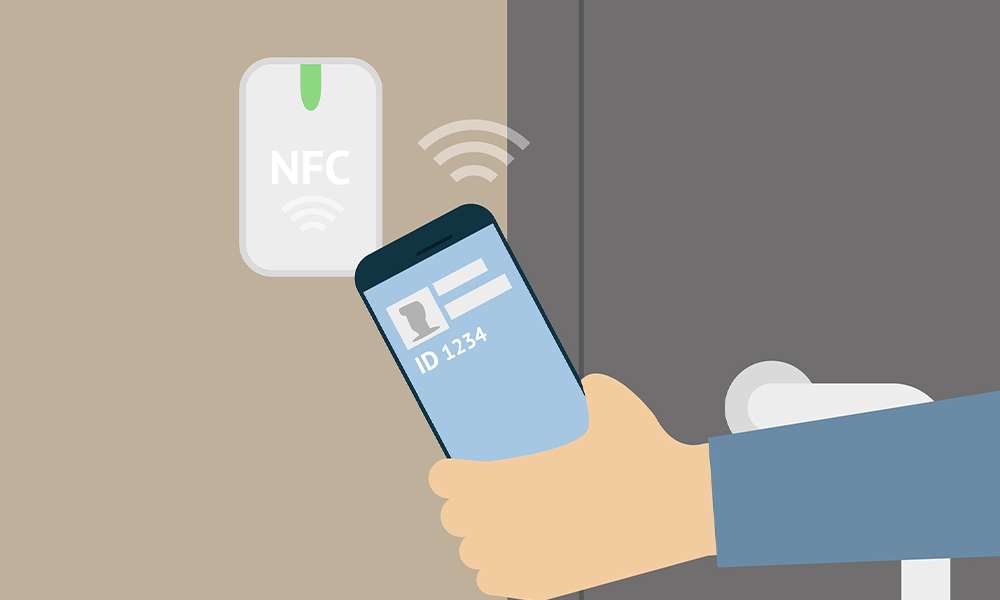
NFC (Near Field Communication) technology evolved from the integration of contactless RFID (radio-frequency identification) technology and interconnectivity techniques. It is a short-range communication protocol that enables easy, secure, fast, and automatic communication between various electronic devices.
Similar to RFID card technology, NFC cards contain embedded chips. They use electromagnetic induction through wireless frequency portions in the spectrum to facilitate access control.
Some modern smartphones come equipped with NFC chips, which can be used for keyless entry by communicating with door locks via NFC-enabled devices.
Advantages:
- NFC offers advantages such as close proximity, high bandwidth, and low energy consumption compared to RFID.
- It is compatible with existing contactless smart card technologies and has become an officially supported standard by many major manufacturers.
Disadvantages:
There may be security risks if the card is lost or stolen.
Additional costs are incurred for purchasing and maintaining cards and card readers.
Smartphone Control Technology
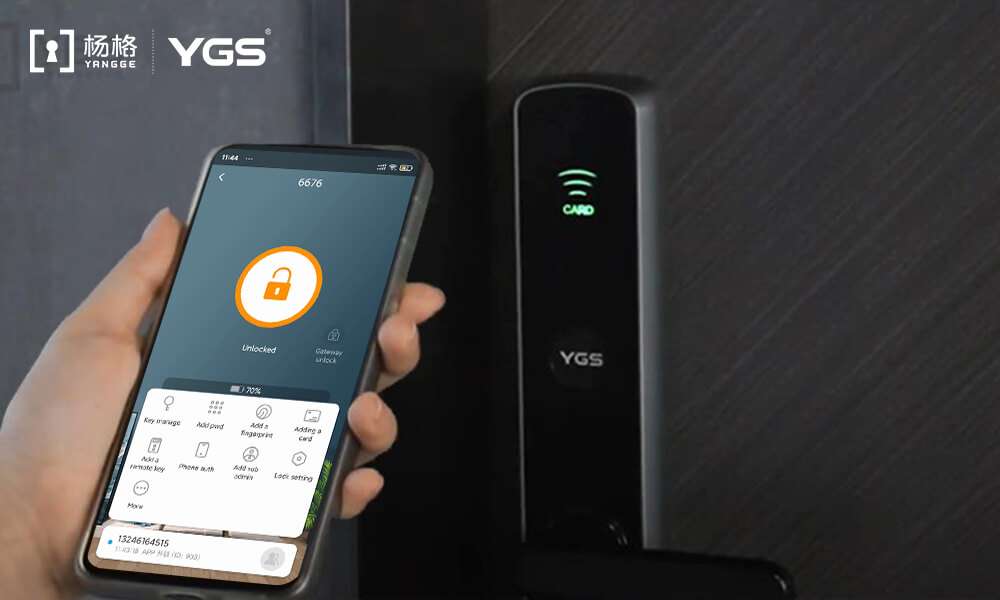
Users can use their mobile devices as access control tools through specific access control applications. These applications typically communicate with door lock systems via Bluetooth, Wi-Fi, or internet connections. As a result, they are suitable for areas requiring flexible access control and tracking options.
Advantages:
Convenient, as users don’t need additional physical cards; their smartphones suffice.
Enhanced security, as it allows for two-factor authentication (password + phone).
Disadvantages:
Users need to install and maintain applications, which may raise privacy concerns.
Deployment and maintenance of access control systems may require higher costs.
Biometric Technology
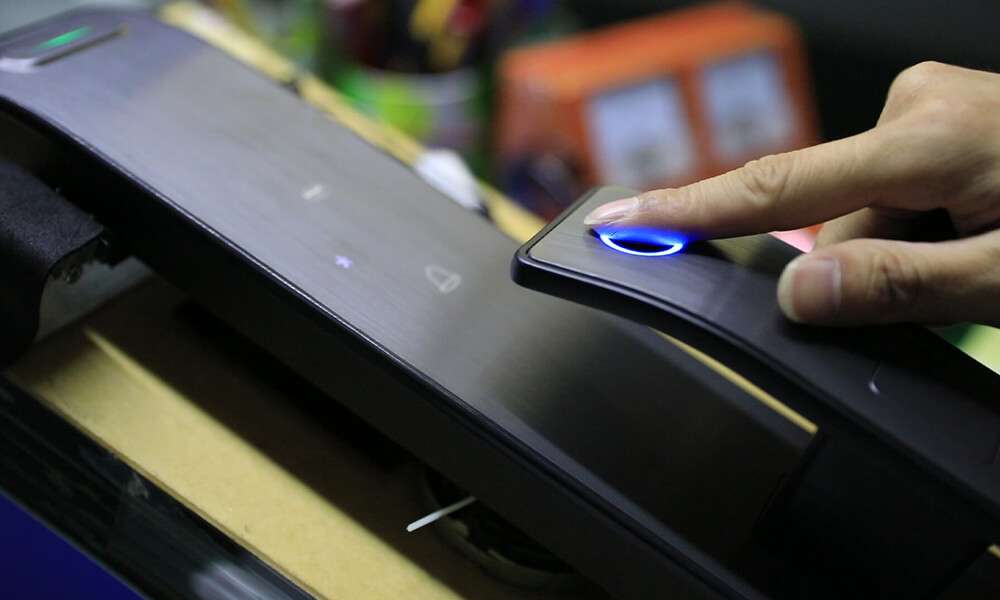
Biometric technology combines computer science with advanced techniques involving optics, acoustics, biometric sensors, and biostatistics principles. It utilizes inherent biological characteristics and behavioral traits for personal identification.
Biometric access control methods primarily include fingerprint recognition, facial recognition, iris recognition, voice recognition, and various authentication methods. Users can unlock access control through their associated biometric features.
Advantages:
High security, as biometric features are unique and difficult to forge.
Convenient and reduces risks since there’s no need to carry cards or phones.
Disadvantages:
Deployment and maintenance of biometric systems are typically more expensive.
Privacy concerns may arise as biometric information needs storage and protection
The Cutting-Edge Trend of Rfid Access Control
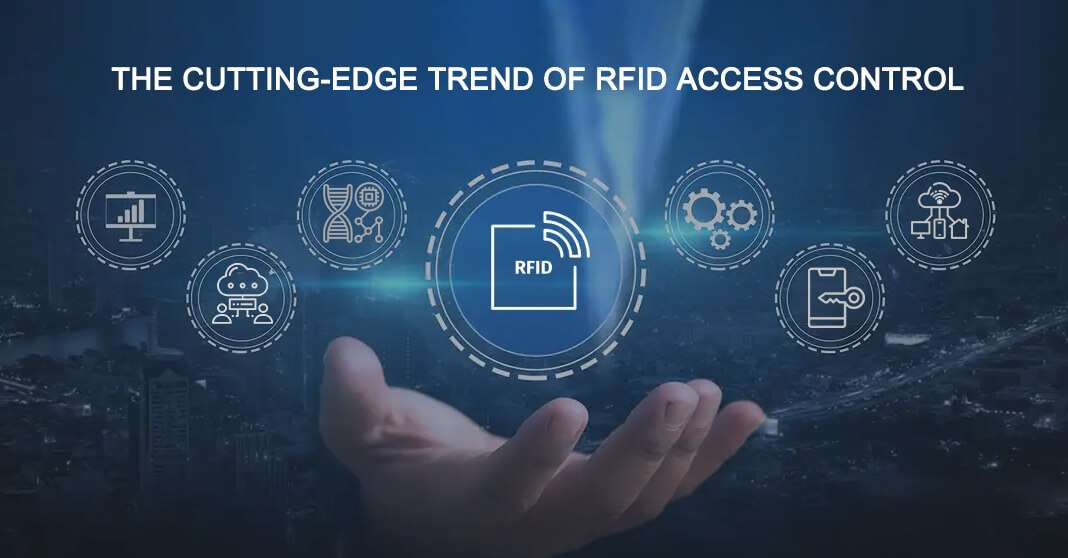
As technology continues to advance, the future of RFID access control seems promising. The integration of cutting-edge technologies such as artificial intelligence, the Internet of Things (IoT), and cloud computing brings new opportunities to the access control industry.
The future of RFID access control will evolve in the following trends:
- Cloud-based systems: In the future, RFID access control systems will incorporate cloud computing technology. Users will no longer need to rely on local servers or physical devices at a particular location to manage access. With just an internet connection, users can easily enter the access control panel of the system. This integration enhances the system’s flexibility and scalability, suitable for various application scenarios.
- IoT integration: Future RFID access control systems will merge with the Internet of Things, connecting various smart home devices such as smart lighting, smart curtains, and temperature control systems. Users can achieve remote control through mobile devices or voice recognition. Real-time data viewing and customized access permissions are supported, providing a smarter and more convenient living experience.
- Biometric authentication: With the widespread application of biometric authentication technology, RFID access control systems will also integrate biometric recognition technologies, including fingerprint recognition, iris scanning, and facial recognition. This offers a higher level of access control and reduces the risk of identity theft.
- Mobile credentials: Many companies have already started using mobile phones or other mobile devices as access credentials for access. This approach is more convenient and easier to manage and revoke user permissions.
- Contactless access: Since the COVID-19 pandemic, contactless access has become increasingly important. Future radio-frequency identification (RFID) technology will continue to drive this trend, offering a wide range of possibilities for achieving more efficient, secure, and hygienic entry methods.
Whether you are a business owner aiming to enhance security or a hotel manager seeking to improve the guest experience, RFID access control is a technology worth considering. It can easily facilitate access management in this ever-evolving field of access control.
Online Enquiry Form
Related Blog
With more than 20 years of smart lock experience, YGS could provide a set of hotel door lock management solutions for your hotel business.
Electronic locking systems & Electronic lock systems
In today’s society, physical security remains essential. However, with advancing technology, traditional mechanical key lock systems have become somewhat inadequate. Two key technologies have revolutionized modern security management to ensure more reliable…
Guide to the Best Hotel Door Lock System 2023
In today’s highly security-conscious society, hotel door lock systems have become an essential part of hotel security management. These systems provide guests with a high level of security and offer effective check-in management and security control tools for hotel management…
Advantages and Disadvantages of RFID Door Lock Systems
In today’s interconnected digital world, security systems and access control have become indispensable key elements for businesses, organizations, and residential properties. However, like any modern technology, RFID door lock systems have both cons and pros…
Discover the Top Hotel Safety Devices for Secure Experience
Hotels are comprehensive service-oriented enterprises that provide accommodation, dining, entertainment, shopping, and other services. It serves as a living base for guests during travels, business trips, conferences, and other activities. For guests, the appeal of a hotel goes…
10 Tips for Better Door Lock Maintenance
Nowadays, smart locks are becoming increasingly widespread. Smart door locks are replacing traditional mechanical locks in more and more households, hotels, and apartments. Despite their strength and intelligence, smart door locks need proper maintenance and care daily, unlike mechanical locks…
Expert Hotel Door Lock Installation Guide & Best Practices
Hotel door locks are one of the essential security devices in a hotel, properly installed can ensure the safety of guests and hotels. Compared to regular home door locks, hotel door lock installation is more complex because it involves hardware and software installation. Even minor errors…

